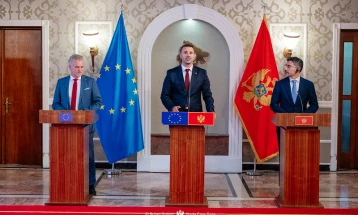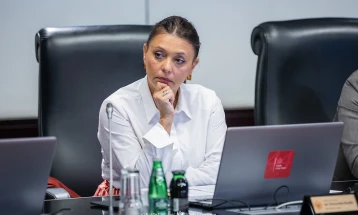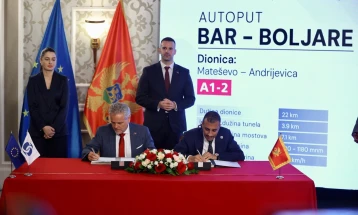Agreement on Serbia/Montenegro union will annul economic reforms
- Agreement on Serbia/Montenegro union will annul economic reforms
- Post By daniloc
- 14:55, 20 april, 2002

Podgorica (MINA-BUSINESS) - A harmonisation of economic systems of Serbia and Montenegro could annul Montenegrin reforms and lead to a creation of a single, issuing central bank, a book Alternative Development Concepts for Montenegro, written by three lecturers of the Podgorica School of Economics said. The authors said the agreement on reformed relations between Serbia and Montenegro had an advantage of providing continuity in getting uninterrupted financial assistance from the international community and leading to an agreement on association and joining the European Union. Positive effects also include an expansion of trade and financial flows between the two members of the union and a greater number of tourists coming to Montenegro from Serbia. Citizens of the new union could probably travel without visas to the EU states, if the Union of Serbia and Montenegro finds itself on so-called "white Schengen list". Among consequences on the economic side, the authors said the new union could result in the return of the Yugoslav dinar to Montenegro as the common currency of the two and harmonisation of customs duties. Authors said negative effects would reflect on foreign investments, because it would remain unclear over the next three years whose regulations would be implemented to regulate conditions for investments in the joint state. They also warned that the harmonisation could lead to a closure of some institutions in Montenegro and a domination of Serbian rules on the unified market. Additional financing of the Yugoslav army will expand the Montenegrin budget deficit by around 78 million euros. Montenegro is not expected to stop financing its own network of trade and diplomatic missions on which it spends around 2.7 million euros a year. The burgeoning budget gap would be possible to reduce with a more generous financial assistance from the European Union or through downsizing of the military units. The three analysts said that the agreement on the union of Serbia and Montenegro fell short of defining the powers of five ministries of the joint state, which could create problems in creating and implementing individual economic policies in Serbia and Montenegro. This problem could lead to strengthening of the union and even to a joint economic policy. "It remains unclear if during the interim period of market harmonisations it would be possible to implement reforms and privatisations and promote exports and foreign investments," the authors of the book Alternative Development Concepts for Montenegro said.












